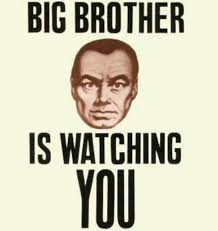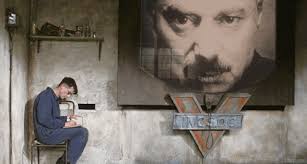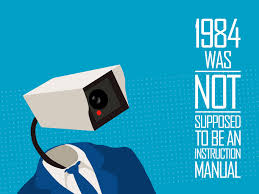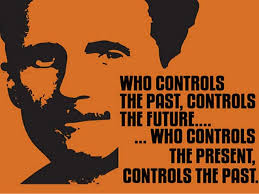https://muse.jhu.edu/article/447754/summary
http://search.proquest.com/docview/198091990?pq-origsite=gscholar
This article will help with any questions dealing with God or religion in the novel.
"Yet, in The Road, the question of redemption returns, with allusions to biblical prophets and to the boy as a messianic figure. Three paragraphs into the book, McCarthy conveys the father's thoughts: "Then he just sat there holding his binoculars and watching the ashen daylight congeal over the land. He knew only that the child was his warrant. He said: if he is not the word of God God never spoke" (4). The question, however, is: how are we to interpret this language within the context of a world that has collapsed? The context is critical here. How do we read images such as the breath of God and the messianic references to the boy after the end of the world? This is a persisting and unavoidable dilemma for readers of The Road - the moment you think redemption, you encounter its impossibility - the ending has already happened."
Thursday, December 1, 2016
Monday, November 21, 2016
Essay 3 Assignment
ENG 215 Honors Essay #3
3-4 pages, double spaced, MLA Guidelines
DUE THURSDAY Dec 15th
Pick one of the following topics and be
sure to use TWO RELIEABLE OUTSIDE SOURCES!
http://eng215honorsfall16.blogspot.com/
The
Road
1) One man they meet on the road says
"There is no God and we are his prophets." What does he mean by this?
Explain the role of God and faith in The
Road. As always, use direct references to the text as your proof.
2) Describe the relationship between the boy
and his father. What do they feel for
each other? How do they maintain their affection for and faith in each other in
such brutal conditions? How do they support each other during the tougher times
of the novel?
3) What does The Road ultimately suggest
about good and evil? What separates the “good guys” from the “bad guys”? How do
we as readers know this?
4) Use the idea that the boy is symbolic of
a religious figure or “the one” and explain how his role changes over the
course of the novel.
5) Compare any of the themes often seen when
looking at post-apocalyptic novels to what we see in the The Road. You can use any of the many examples we currently see in
pop culture.
6) We discussed light and darkness on class last week, using the link to 'The Allegory of the Cave" in the last blog post, discuss light and darkness in the novel.
The Road
NY Times:
http://www.nytimes.com/2006/10/08/books/review/Kennedy.t.html?pagewanted=all
http://blog.mattmecham.com/2007/05/29/cormack-mccarthy-the-road/
Hope:
http://www.psychologytoday.com/blog/dont-delay/200805/coping-and-procrastination-the-role-hope
http://www.google.com/url?sa=t&rct=j&q=&esrc=s&frm=1&source=web&cd=6&ved=0CGoQFjAF&url=http%3A%2F%2Fwww.swarthmore.edu%2FSocSci%2Fbschwar1%2Fpitfalls.pdf&ei=5epxT-OyKoPC0QGIlOWgAQ&usg=AFQjCNHKErPOuXD1lgCFc7gjizHGBkt_jg&sig2=Iz-GAe8EOtNQLnsdv7Ws9g
http://www.huffingtonpost.com/joyce-mcfadden/the-psychology-of-hope-an_b_141856.html
This is an article on The Road and "The Allegory of the Cave"
tp://journals.tdl.org/cormacmccarthy/index.php/cormacmccarthy/article/view/852/616
More about The Road
http://www.nytimes.com/2006/10/08/books/review/Kennedy.t.html?pagewanted=all&_r=0
http://www.themodernword.com/reviews/mccarthy_road.html
http://www.lrb.co.uk/v29/n02/philip-connors/crenellated-heat
http://scholarcommons.usf.edu/cgi/viewcontent.cgi?article=2639&context=etd
http://www.bookforum.com/inprint/013_04/499
http://www.bookforum.com/inprint/013_04/499
http://network.bepress.com/explore/arts-and-humanities/english-language-and-literature/literature-in-english-north-america/?facet=publication_facet%3A%22Cormac+McCarthy+Conference%22
http://www.nytimes.com/2006/10/08/books/review/Kennedy.t.html?pagewanted=all
http://blog.mattmecham.com/2007/05/29/cormack-mccarthy-the-road/
Hope:
http://www.psychologytoday.com/blog/dont-delay/200805/coping-and-procrastination-the-role-hope
http://www.google.com/url?sa=t&rct=j&q=&esrc=s&frm=1&source=web&cd=6&ved=0CGoQFjAF&url=http%3A%2F%2Fwww.swarthmore.edu%2FSocSci%2Fbschwar1%2Fpitfalls.pdf&ei=5epxT-OyKoPC0QGIlOWgAQ&usg=AFQjCNHKErPOuXD1lgCFc7gjizHGBkt_jg&sig2=Iz-GAe8EOtNQLnsdv7Ws9g
http://www.huffingtonpost.com/joyce-mcfadden/the-psychology-of-hope-an_b_141856.html
This is an article on The Road and "The Allegory of the Cave"
tp://journals.tdl.org/cormacmccarthy/index.php/cormacmccarthy/article/view/852/616
More about The Road
http://www.nytimes.com/2006/10/08/books/review/Kennedy.t.html?pagewanted=all&_r=0
http://www.themodernword.com/reviews/mccarthy_road.html
http://www.lrb.co.uk/v29/n02/philip-connors/crenellated-heat
http://scholarcommons.usf.edu/cgi/viewcontent.cgi?article=2639&context=etd
http://www.bookforum.com/inprint/013_04/499
http://www.bookforum.com/inprint/013_04/499
http://network.bepress.com/explore/arts-and-humanities/english-language-and-literature/literature-in-english-north-america/?facet=publication_facet%3A%22Cormac+McCarthy+Conference%22
Thursday, November 10, 2016
More Hurston
https://books.google.com/books?hl=en&lr=&id=RuGMORXyF4YC&oi=fnd&pg=PA155&dq=nature+in+their+eyes+were+watching+god&ots=I9lQ3c8-t-&sig=1VQGjqg6o4V4Zv_6QdFSoBu17pI#v=onepage&q=nature%20in%20their%20eyes%20were%20watching%20god&f=false
https://books.google.com/books?hl=en&lr=&id=DjQMg8gTzygC&oi=fnd&pg=PR7&dq=nature+in+their+eyes+were+watching+god&ots=iRj260ZYrT&sig=vyS5ro_-BwgLohx-7JMIrAnMCzM#v=onepage&q=nature%20in%20their%20eyes%20were%20watching%20god&f=false
https://books.google.com/books?hl=en&lr=&id=DjQMg8gTzygC&oi=fnd&pg=PR7&dq=nature+in+their+eyes+were+watching+god&ots=iRj260ZYrT&sig=vyS5ro_-BwgLohx-7JMIrAnMCzM#v=onepage&q=nature%20in%20their%20eyes%20were%20watching%20god&f=false
Tuesday, November 8, 2016
We Have Always Lived in the Castle and Pafko at the Wall
We Have Always Lived in the Castle
1)
Explain
the gothic elements of the story. What makes this story “gothic”? How does it
shape the story?
2)
The
relationship between the sisters has been looked at with a “feminist eye” by a
number of critics. Examine their relationship and how it could be considered
feminist?
3)
We
discussed the elements of magic and superstition in the novel in class; explain
how these two ideas have a role in the novel.
4)
Defend or refute the following statement: “The greatest evil in the book comes from Merricat’s
innocence, because she doesn’t yet have the experience that engenders empathy.”
Pafko at the Wall
1)
This novel has been described as “history (with a
lower case h) up against History”(with an uppercase H). Think about how DeLillo
engages the larger force of history through some element of Pafko at the Wall — find one element of
the narrative’s language, plot, character, or some other element and make a
case for how DeLillo uses that element to imagine or describe some sort of
counter history against the larger forces controlling the history of this
period.
2)
We spoke a lot about the influence of environment on
Cotter and Bill quite a bit in class for this story. Examine that chase scene
between the two characters and what we see going on there.
Tuesday, November 1, 2016
Thier Eyes Were Watching God
"How It Feels to Be Colored Me"
http://xroads.virginia.edu/~ma01/grand-jean/hurston/chapters/how.html
http://edsitement.neh.gov/lesson-plan/folklore-zora-neale-hurstons-their-eyes-were-watching-god
http://books.google.com/books?hl=en&lr=&id=WBNuLxTzzwMC&oi=fnd&pg=PP1&dq=their+eyes+were+watching+god+&ots=KAzRr1Ma0_&sig=mxqil9lKNLCWkG8Ycj1Jvc6N2_k#v=onepage&q=their%20eyes%20were%20watching%20god&f=false
http://books.google.com/books?hl=en&lr=&id=RuGMORXyF4YC&oi=fnd&pg=PA155&dq=their+eyes+were+watching+god+critical+&ots=I9gN-e64o7&sig=fZIDfaYqwb2NZjUuQPtX5rGQAsk#v=onepage&q=their%20eyes%20were%20watching%20god%20critical&f=false
http://books.google.com/books?hl=en&lr=&id=DjQMg8gTzygC&oi=fnd&pg=PR7&dq=their+eyes+were+watching+god+critical+&ots=iRe-22X1m-&sig=SNAVAwSdsHW_WfsojBWRQlGiupA#v=onepage&q=their%20eyes%20were%20watching%20god%20critical&f=false
http://www.jstor.org/discover/10.2307/464063?sid=21105518868921&uid=2&uid=3739256&uid=3739808&uid=4
http://xroads.virginia.edu/~ma01/grand-jean/hurston/chapters/how.html
http://edsitement.neh.gov/lesson-plan/folklore-zora-neale-hurstons-their-eyes-were-watching-god
http://books.google.com/books?hl=en&lr=&id=WBNuLxTzzwMC&oi=fnd&pg=PP1&dq=their+eyes+were+watching+god+&ots=KAzRr1Ma0_&sig=mxqil9lKNLCWkG8Ycj1Jvc6N2_k#v=onepage&q=their%20eyes%20were%20watching%20god&f=false
http://books.google.com/books?hl=en&lr=&id=RuGMORXyF4YC&oi=fnd&pg=PA155&dq=their+eyes+were+watching+god+critical+&ots=I9gN-e64o7&sig=fZIDfaYqwb2NZjUuQPtX5rGQAsk#v=onepage&q=their%20eyes%20were%20watching%20god%20critical&f=false
http://books.google.com/books?hl=en&lr=&id=DjQMg8gTzygC&oi=fnd&pg=PR7&dq=their+eyes+were+watching+god+critical+&ots=iRe-22X1m-&sig=SNAVAwSdsHW_WfsojBWRQlGiupA#v=onepage&q=their%20eyes%20were%20watching%20god%20critical&f=false
http://www.jstor.org/discover/10.2307/464063?sid=21105518868921&uid=2&uid=3739256&uid=3739808&uid=4
https://books.google.com/books?id=WWDZBgAAQBAJ&pg=PT36&lpg=PT36&dq=Simmons,+Ryan.+%22The+Hierarchy+Itself:+Hurston%27s+Their+Eyes+Were+Watching+God+and+the+Sacrifice+of+Narrative+Authority%22.+African+American+Review+36.2+%28Summer+2002%29:+181-93.+Print&source=bl&ots=TDBQHQO9Cc&sig=hYD7BMCCCTuHvHxUDTm7JGrO6NU&hl=en&sa=X&ei=tSUHVenhE4uyggS9s4CIBQ&ved=0CCUQ6AEwAQ#v=onepage&q=Simmons%2C%20Ryan.%20%22The%20Hierarchy%20Itself%3A%20Hurston's%20Their%20Eyes%20Were%20Watching%20God%20and%20the%20Sacrifice%20of%20Narrative%20Authority%22.%20African%20American%20Review%2036.2%20(Summer%202002)%3A%20181-93.%20Print&f=false
Podcast:
https://itunes.apple.com/us/podcast/neas-the-big-read/id303133830?mt=2&i=52870823
Podcast:
Thursday, October 13, 2016
We Have Always Lived in the Castle
http://www.nybooks.com/articles/2009/10/08/the-witchcraft-of-shirley-jackson/
http://www.jstor.org/stable/3346088?seq=1#page_scan_tab_contents
https://books.google.com/books?hl=en&lr=&id=FwpLwPJpSNwC&oi=fnd&pg=PA110&dq=we+have+always+lived+in+the+castle&ots=ejhHiL2UTf&sig=yPixCCX-Yp32x25f5a-QySOELx4#v=onepage&q=we%20have%20always%20lived%20in%20the%20castle&f=false
http://s3.amazonaws.com/academia.edu.documents/37318590/04_Hwang_1.pdf?AWSAccessKeyId=AKIAJ56TQJRTWSMTNPEA&Expires=1476374064&Signature=YhFt7a8LoeZrfSkKE6vRnQLNJY8%3D&response-content-disposition=inline%3B%20filename%3DWriting_is_the_way_out_Shirley_Jackson.pdf
http://www.jstor.org/stable/3346088?seq=1#page_scan_tab_contents
https://books.google.com/books?hl=en&lr=&id=FwpLwPJpSNwC&oi=fnd&pg=PA110&dq=we+have+always+lived+in+the+castle&ots=ejhHiL2UTf&sig=yPixCCX-Yp32x25f5a-QySOELx4#v=onepage&q=we%20have%20always%20lived%20in%20the%20castle&f=false
http://s3.amazonaws.com/academia.edu.documents/37318590/04_Hwang_1.pdf?AWSAccessKeyId=AKIAJ56TQJRTWSMTNPEA&Expires=1476374064&Signature=YhFt7a8LoeZrfSkKE6vRnQLNJY8%3D&response-content-disposition=inline%3B%20filename%3DWriting_is_the_way_out_Shirley_Jackson.pdf
Thursday, October 6, 2016
Pafko Article From Class
http://www.nytimes.com/library/books/090797article3.html
http://perival.com/delillo/19511004_NYT.html
http://perival.com/delillo/19511004_NYT.html
Thursday, September 29, 2016
Pafko at the Wall
http://perival.com/delillo/underworld_triumph.html
This link gives some insight to what the author was attempting to do with this story. There are also links to other articles on the text.
https://depaul.digication.com/discover_chicago_chicago_cubs1/Pafko_at_the_Wall_Response
More critical analysis of the text.
http://genius.com/Stephen-pringle-when-sport-and-literature-collide-annotated
This is from a blog and I tend to be negative on blogs as an outside source but there are some good points here.
This link gives some insight to what the author was attempting to do with this story. There are also links to other articles on the text.
https://depaul.digication.com/discover_chicago_chicago_cubs1/Pafko_at_the_Wall_Response
More critical analysis of the text.
http://genius.com/Stephen-pringle-when-sport-and-literature-collide-annotated
This is from a blog and I tend to be negative on blogs as an outside source but there are some good points here.
Wednesday, September 14, 2016
Thursday, September 8, 2016
1984
Here is a link with outside sources connected to 1984:
http://www.literaryhistory.com/20thC/Orwell.htm
NY Times article from 1984:
http://www.nytimes.com/1984/01/01/nyregion/the-message-for-today-in-orwell-s-1984.html
Some more literary criticism:
http://theliteraryindex.com/george-orwell-literary-criticism.html
Letter written by Orwell:






http://www.literaryhistory.com/20thC/Orwell.htm
NY Times article from 1984:
http://www.nytimes.com/1984/01/01/nyregion/the-message-for-today-in-orwell-s-1984.html
Some more literary criticism:
http://theliteraryindex.com/george-orwell-literary-criticism.html
Letter written by Orwell:
http://www.openculture.com/2014/01/george-orwell-explains-in-a-revealing-1944-letter-why-hed-write-1984.html
Tuesday, September 6, 2016
Pafko At the Wall
I was informed that Pafko At the Wall is out of print so the bookstore does not have the text.
Here is a link to the PDF of the story or you can buy the book online:
http://www.dumpendebat.net/static-content/delillo/DeLillo-Pafko_At_The_Wall-Oct1992.pdf
Here is a link to the PDF of the story or you can buy the book online:
http://www.dumpendebat.net/static-content/delillo/DeLillo-Pafko_At_The_Wall-Oct1992.pdf
Monday, August 29, 2016
Syllabus
Honors
Modern Literary Masterpieces
ENG215
Essex County College
Prof. Sean O’Connell Tues,
Thurs 11:30-12:50
Email:soconnel@essex.edu
Phone:
973-877-1926 Office: 1141
Office
Hours: T//R 9-10 Room:
2110
By
Appointment
Texts: YOU NEED TO BUY THE
TEXTS!!!
·
1984 George Orwell
·
Pafko At the Wall Don DeLillo
·
We Always Lived in the Castle Shirley Jackson
·
Their Eyes Were Watching God Zora Neale Hurston
·
The Road Cormac McCarthy
*In class assignments will be
handwritten; all homework assignments should be typed and double spaced using
12-point Times New Roman font.
I
will use the class blog weekly to post assignments, links and back up
information. Visit it a few times a week!!!
THERE ARE NO LATE PAPERS.
IF YOU DO NOT HAND IN A PAPER ON THE DAY THE FINAL DRAFT IS DUE, YOU WILL
RECEIVE AN F FOR THAT PAPER.
YOU MUST HAND ME EACH PAPER.
EMAIL IS NOT GOING TO WORK FOR FORMAL ESSAYS.
Course Description: The Development of modern literary thought is
examined from the post-Renaissance era to the present day. Students will do an intensive study of
selected masterpieces of world literature.
General Education Goals: ENG 215 is
affirmed in the following General Education Foundation Categories: Humanistic Perspective and Global and Cultural Awareness of Diversity. The corresponding General Education Goals are
respectively as follows: Students will analyze works in the field of art,
music, or theater; literature; and philosophy and/or religious studies; and
will gain competence in the use of a foreign language; and Students will understand
the importance of global perspective and culturally diverse peoples.
Course
Goals: Upon successful completion of this course, students
should be able to do the following:
1. discuss the universality and diversity of literary
thought;
2. apply critical and analytical approaches to
the study of literature; and
3. write critical and analytical essays about
literary works.
Measurable
Course Performance Objectives (MPOs): Upon
successful completion of this course, students should specifically be able to
do the following:
1. Discuss the universality and diversity of
cultural values of the western world as expressed in its literature:
1.1 identify
and describe specific themes that identify the universality and the diversity
of literary thought; and
1.2 explain
these universal and diverse themes as reflected in the specific literary work
Measurable Course Performance Objectives (MPOs) (continued):
2. Apply critical and analytical approaches to
the study of literature:
2.1 define
basic terms and concepts used in literary discussion;
2.2 analyze
and describe how these terms and concepts operate in each work studied; and
2.3 use
these terms and concepts as the basis for literary analysis
3. Write critical and analytical essays about
literary works:
3.1 write
several short critical and analytical essays about selected works studied;
3.2 use
appropriate citations from the source work to support the development of the
thesis idea in the critical essay;
3.3 write
a longer documented literary research paper about a work relevant to the
course;
3.4 use
appropriate citations from the source work to support the development of the thesis
in the documented literary research paper;
3.5 use
the library and other resources to find relevant, scholarly secondary source
material in support of the thesis in the documented literary research paper;
3.6 write
in one’s own voice in the essay while properly incorporating primary and
secondary material; and
3.7 prepare
the documented literary research paper in standard MLA format
Methods of
Instruction: Instruction will consist of lecture,
discussion, and the development of a series of extended compositions analyzing
pieces of literature, including a documented literary research paper.
Outcomes Assessment: Checklist rubrics
are used to evaluate sampled student critical essays analyzing literature for
the presence of the measurable objectives.
A survey to be administered following essays
evaluates student preparation for writing analysis of literature. Checklist rubrics are used to evaluate the
various elements of the documented literary research paper. And a survey that is blueprinted to learning
objectives is administered during the twelfth week.
Course
Requirements: All
students are required to:
1. Complete
the intensive reading of six literary masterpieces (at least one from each
category). The selection should include
a balance of literary genres.
2. Write critical essays and a documented
literary research paper to total at least three thousand words. The documented literary research paper should
be written according to current MLA format.
3. Read shorter works, such as poetry, as assigned
by the instructor.
4. Read all other assigned material.
5. Participate in class discussions.
Methods of Evaluation:
Final course grades will be computed as follows:
%
of
Grading Components final course grade
·
3 or more Critical Essays Analyzing Pieces of Literature 80%
·
Attendance, participation and in class work 10%
·
Presentation 10%
Note: The
instructor will provide specific weights, which lie in the above-given ranges,
for each of the grading components at the beginning of the semester.
Academic
Integrity: Dishonesty disrupts the search
for truth that is inherent in the learning process and so devalues the purpose
and the mission of the College. Academic dishonesty includes, but is not
limited to, the following:
·
plagiarism
– the failure to acknowledge another writer’s words or ideas or to give proper
credit to sources of information;
·
cheating –
knowingly obtaining or giving unauthorized information on any test/exam or any
other academic assignment;
·
interference
– any interruption of the academic process that prevents others from the proper
engagement in learning or teaching; and
·
fraud – any act or instance of
willful deceit or trickery.
Violations
of academic integrity will be dealt with by imposing appropriate
sanctions. Sanctions for acts of academic dishonesty could include the
resubmission of an assignment, failure of the test/exam, failure in the course,
probation, suspension from the College, and even expulsion from the College.
Student
Code of Conduct: All students are expected to conduct themselves as responsible and
considerate adults who respect the rights of others. Disruptive behavior will not be
tolerated. All students are also
expected to attend and be on time all class meetings. No cell phones or similar electronic devices
are permitted in class. Please refer to
the Essex County College student handbook, Lifeline,
for more specific information about the College’s Code of Conduct and
attendance requirements.
9/8
T Introduction to course, plagiarism, syllabus, presentation discussion and Read “The TV” handout
9/6
R “The TV” Handout
9/8 T
1984
9/13 R
1984
9/15 T
1984
9/20 R
1984
9/27
T Film: V For Vendetta
9/29
R Film: V For Vendetta, ASSIGN FIRST
PAPER
10/4 T
In Class Discussion on “Human Ecology” in Pafko
at the Wall
10/6 R
Pafko at the Wall
10/11
T Pafko at the Wall
10/13
R PAPER DUE, We Have Always Lived in the Castle
10/18
T We Have
Always Lived in the Castle
10/20
R, We Have Always Lived in the Castle
10/25
T Film
10/27
R Film ASSIGN SECOND PAPER
11/1 TTheir Eyes Were Watching God (Up to Ch
5)
11/3
R Their Eyes Were Watching God (Up to
Ch 10)
11/8 T
Their Eyes Were Watching God (Up to
Ch 15),
11/10
R Their Eyes Were Watching God
(Finish Novel), PAPER DUE
11/15
T Outside Sources for Their Eyes Were
Watching God
11/17
R The Road
11/22
T The Road, ASSIGN FINAL PAPER
11/24
R ***NO CLASS***
11/29
T The Road
12/1 R
Sign up for Presentations
12/6 T
Presentations
12/8 R
Presentations
12/13
T ***NO CLASS***WORK ON PAPER
12/15
R Final Research Paper due
Subscribe to:
Comments (Atom)